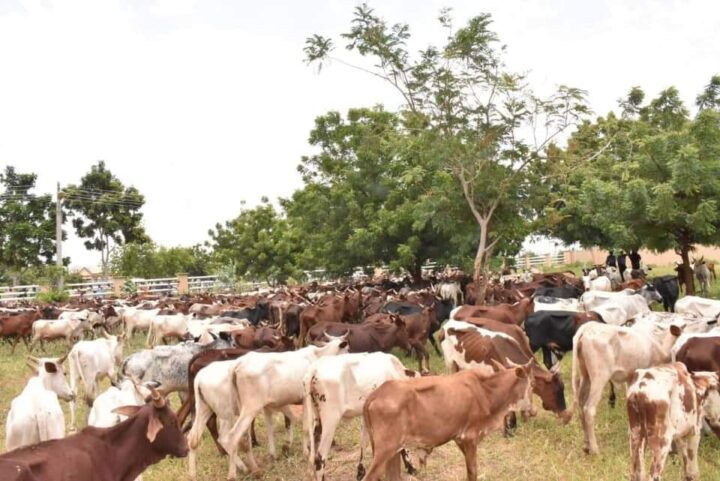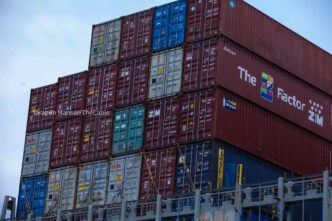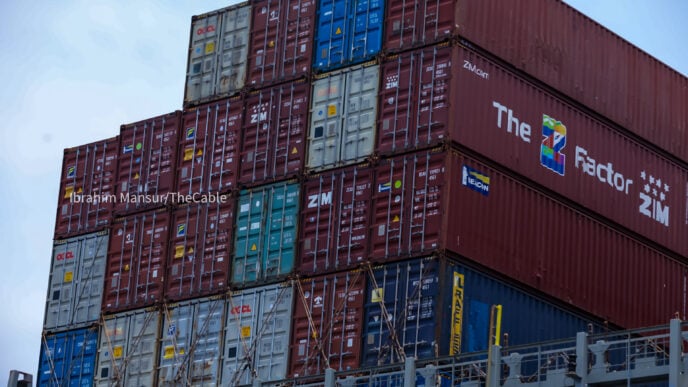BY SAMUEL JEKELI
Nigeria is sitting on a ticking time bomb, one that is not just about food security, but about people, livelihoods, and public health. The farmer–herder conflict, which for years has dominated discussions in policy circles, is taking a deadlier turn. It is no longer only about destroyed crops and stolen cows; it is now about poisoned food entering our markets and ending up on the plates of unsuspecting citizens.
Across the country, from Benue to Nasarawa, from Plateau to Oyo, stories are emerging of farmers taking extreme measures to protect their crops. Weary of watching their sweat and investment devoured overnight by roaming cattle, some farmers are resorting to poisoning their crops as a last line of defence.
To them, this is not an act of cruelty but of survival, a desperate move to save what is left of their livelihood. When a farmer has invested months of labour and resources into planting and suddenly sees cows destroy everything in a single night, the temptation to act becomes overwhelming.
Advertisement
On the other side of this tragic equation, herders wake up to find their prized cows dead. For many of them, this is not just a financial loss but a cultural and emotional one. A single cow can represent years of savings, and its death could mean the collapse of an entire family’s income. Out of anger, despair, or sheer economic necessity, some of these herders choose to slaughter the poisoned cows and sell the meat in local markets rather than bury the animals and incur a total loss.
The result is a dangerous and deadly cycle. Farmers are embittered, herders are vengeful, and ordinary Nigerians, including children, pregnant women, and the elderly, are left as the final victims, unknowingly buying and consuming toxic meat. This is the silent war within agriculture, a war that endangers not just the economy but human life itself.
As a professional who works in human resource management, I cannot help but see this through the lens of people management. At its heart, this is not just an agricultural problem; it is a human problem. Farmers and herders are not enemies by nature; they are co-workers in Nigeria’s food chain. But today, they are working under conditions so hostile that it is as though they are being set up to destroy each other.
Advertisement
What we are witnessing is a breakdown of the people systems that keep agriculture functional. Farmers are losing morale and abandoning their farms. Herders are losing their primary assets and, in turn, taking desperate measures that put public health at risk. Butchers, traders, and even transporters are unwittingly becoming conduits for poisoned meat.
If this were happening in a corporate organisation, no HR manager would allow the workplace to become so toxic that employees start sabotaging one another’s work tools. Yet, that is what we are allowing to happen in our agricultural “workplace.” A healthy work environment, whether in an office or a farm settlement, requires rules, accountability, and a conflict-resolution system. Without these, chaos is inevitable, and that is exactly what Nigeria is witnessing.
To end this war, Nigeria must go beyond rhetoric and implement practical solutions that address the root causes of this conflict. Government must enforce grazing regulations and land-use policies that protect both farmland and livestock. Ranching, though controversial, remains one of the most sustainable solutions for keeping cattle off farmlands and reducing friction. Farmers need support in the form of affordable fencing, security patrols, and fair compensation whenever their crops are destroyed. Herders need education on responsible grazing and access to veterinary services that can test and confirm the cause of cattle deaths before rash actions are taken.
Equally important is the need for proper market surveillance. Our abattoirs and meat distribution systems must be closely monitored to ensure that poisoned carcasses do not enter the food chain. This is not just an agricultural concern but a public health priority. The government must also create safe channels for dispute resolution — community peace committees, mediation platforms, and compensation frameworks that give both farmers and herders a voice and a fair hearing.
Advertisement
The war within agriculture is not just killing cows or destroying crops; it is eroding trust between communities, worsening food insecurity, and silently destroying human potential. If we fail to act, we risk losing the very workforce that sustains Nigeria’s food economy. If we are serious about food security, then we must be serious about people’s security. The time to act is now, not just to save farms and cattle, but to save lives.
Samuel Jekeli, a human resources professional, writes from FCT, Abuja. He can be contacted via [email protected]
Views expressed by contributors are strictly personal and not of TheCable.











